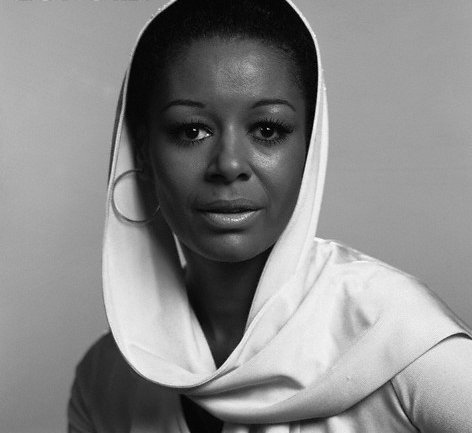4 sisters. During the late 1800's
Young lady from the early 1900's
Josephine Baker: Josephine Baker sashayed onto a Paris stage during the 1920s with a comic, yet sensual appeal that took Europe by storm. Famous for barely-there dresses and no-holds-barred dance routines, her exotic beauty generated nicknames "Black Venus," "Black Pearl" and "Creole Goddess." Admirers bestowed a plethora of gifts, including diamonds and cars, and she received approximately 1,500 marriage proposals. She maintained energetic performances and a celebrity status for 50 years until her death in 1975. Unfortunately, racism prevented her talents from being wholly accepted in the United States until 1973. http://www.cmgww.com/stars/baker/index.php
Aida Overton Walker (1907)
1880 - d. 1914
Aida Overton Walker dazzled early-twentieth-century theater audiences with her original dance routines, her enchanting singing voice, and her penchant for elegant costumes. One of the premiere African American women artists of the turn of the century, she popularized the cakewalk and introduced it to English society. In addition to her attractive stage persona and highly acclaimed performances, she won the hearts of black entertainers for numerous benefit performances near the end of her tragically short career and for her cultivation of younger women performers. She was, in the words of the New York Age's Lester Walton, the exponent of "clean, refined artistic entertainment."
Cleo Hayes (1936)
Born on the Delta in Greenville, Mississippi, Cleo escaped to Chicago and got her first job dancing at the Grand Terrace with Earl Hines. After a stint performing at the World's Fair, she took a bus to New York and started at the newly opened Apollo Theater, as one of the Apollo "Rockettes." When the Cotton Club moved to its elegant new home downtown in Times Square, Cleo joined that company. She then traveled with Bertye Lou dancing throughout South America, and later with the first black USO unit during WWII. Cleo recounts that USO tour: how they had to receive their meals out the back doors of the mess halls in the south, and her own personal insurrection: taking "For Colored Only" signs off the trains they rode. After the war, with theaters wanting to cut expenses and chorus line work drying up, Cleo danced while the work lasted — at Broadway's Café Zanzibar, the 845 Club, on tour with Cab Calloway, and in the film "Stormy Weather."
Date unknown. I think these ladies look so classic.
Two Teens In White
During the civil rights movement a party was thrown at a school in Virginia to introduce blacks to whites.Actress Gail Fisher (photo taken in 1973).
First African-American actress to win an Emmy for Outstanding Performance in a Dramatic Series in 1970
1935 - 2000
Born in Plainfield, New Jersey.
In 1970 she became the very first African American Actress to win an Emmy award for acting, when she received the Emmy for Oustanding Supporting Actress in a Drama Series for her role as Peggy Fair in "Mannix".
Understudied Ruby Dee on Broadway in "Purlie Victorious".
Has two daughters by her first husband.
Studied with Lee Strasberg and was later a member of the Repertory Theater at Lincoln Center where she worked with Elia Kazan. Her stage work included "A Raisin In The Sun," "Purlie Victorious" and "Danton's Death".
One of TV's most visible black actors of the late 60s, Gail was nominated for four Emmy Awards for her stylish secretary, winning once, and for three Golden Globe Awards, winning twice.
CBS was hesitant to cast Gail as the widow and altruistic secretary Peggy Fair of detective Joe Mannix, but actor Mike Connors and "Mannix" producer Bruce Geller persisted.
She battled drugs in the popular show's aftermath and eventually sought rehab after being arrested in 1978 for cocaine possession.
Became one of the first black actresses to appear in a national TV commercial with speaking lines when she did an ad for All detergent in 1961.
Gail did not make her appearance on "Mannix" (1967) until the show's second season, after Mannix left the detective firm Intertect and set up his own shop as private investigator.
Landed her first television appearance at age 25 in the 1960 syndicated program, "Play of the Week".
On December 2, 2000, Gail Fisher passed away at home from lung cancer. Twelve hours later, her brother Clifton, a businessman, died of heart failure.
Image by © Bettmann/CORBIS
Bio Internet Movie Database









great post, soemtimes it is nice to feature the history, it also shows how fashion has evolved in time...
ReplyDeleteThese are wonderful photos and stories of outstanding women of color! Thanks for sharing!
ReplyDeleteThis is the best post I have seen and read in a long time. Beautiful.
ReplyDeleteLove Love Love!! Very nicely done =)
ReplyDeleteexcellent post!!! such beautiful photos...
ReplyDeletethanks so much for your comments!!!
ReplyDeletegreat post!
ReplyDeleteI have met a LADORIAN
ReplyDelete